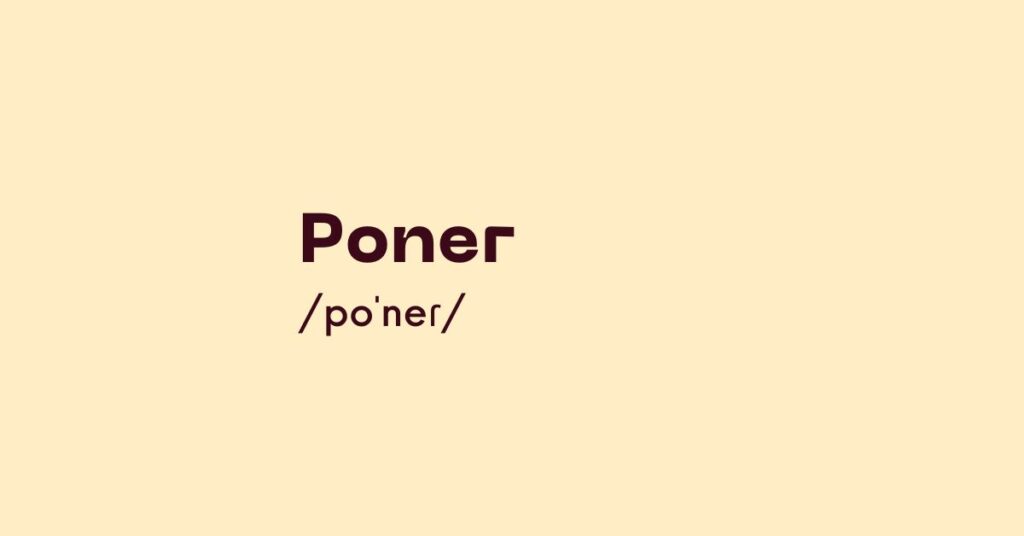Today’s Spanish word of the day is “poner”.
It’s a verb meaning “to put”. In the reflexive form (“ponerse”), it can be translated as “to put on”.
It can also mean “to get”, “to become” or “to turn” in the sense of taking on a different attitude or condition. Here are a few examples of how it can be used in this way:
- Me pongo nervioso cuando hablo en público. – I get nervous when I speak in public.
- Se pone furioso cuando alguien llega tarde. – He becomes furious when someone is late.
- Te pones rojo cuando te enojas. – You turn red when you get angry.
In Spain, the verb “poner” is often used when requesting things in cafes and shops. For example:
- ¿Nos puede poner la cuenta, por favor? – Can you bring us the bill, please? (Literally “Can you put us the bill, please?”)
The word “poner” comes from Latin ponere, meaning “to put” or “to place”. This is also the root of several English words including “pose”, “compose” and “position”.
“Poner” is an irregular verb. Here’s the conjugation in the present tense:
- Ellos/Ellas/Ustedes ponen – They put, You put (plural)
- Yo pongo – I put
- Tú pones – You put (informal singular)
- Él/Ella/Usted pone – He/She puts, You put (formal singular)
- Nosotros/Nosotras ponemos – We put
- Vosotros/Vosotras ponéis – You put (informal plural, only used in Spain)
- Ellos/Ellas/Ustedes ponen – They put, You put (plural)
Example sentences
Voy a ponerme el abrigo.
I am going to put on my coat.
¿Me pones un café, por favor?
Could I have a coffee, please?
Voy a poner música de bachata para la fiesta.
I’m going to put on bachata music for the party.
¿Dónde pongo las llaves?
Where do I put the keys?
“Pon atención a mis palabras,” susurró el anciano moribundo.
“Pay attention to my words,” whispered the dying old man.

